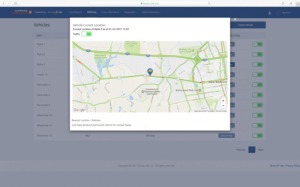by
Lauren Dubinsky, Senior Reporter | April 02, 2018

Valuable for skilled nursing facilities
and nursing homes
The ride-share company Lyft is cruising into the health care industry through a partnership with Acuity Link.
Lyft’s ride-hailing functionality can now be accessed on Acuity Link’s non-emergency medical transportation (NEMT) logistic management dashboard.
The NEMT platform already offers many levels of care and modes of transportation from critical care ambulance transport to ambulatory patient transport. With Lyft, the platform will also provide health care providers with ambulatory transportation services.



Ad Statistics
Times Displayed: 173965
Times Visited: 3176 For those who need to move fast and expand clinical capabilities -- and would love new equipment -- the uCT 550 Advance offers a new fully configured 80-slice CT in up to 2 weeks with routine maintenance and parts and Software Upgrades for Life™ included.
Alex Theoharidis, CEO of Acuity Link, explained that many ambulatory patient transports were traditionally performed through a taxi voucher system, which has been poorly serviced, inefficient, non-transparent and costly to all stakeholders.
Acuity Link predicts that their platform will be especially beneficial for skilled nursing facilities and nursing homes that need to coordinate alternative transportation for patients. Ambulatory patients are typically transported from nursing homes via wheelchair van services because most ambulance providers don’t offer ambulatory medical transportation.
The NEMT platform leverages customizable vehicle assignment logic, real-time integration with dispatch systems and automated medical necessity authorizations. It allows health care organizations to schedule on-demand, recurring and multi-destination transportation for their patients.
The dashboard features reporting and analytics tools that are run by automatic geo-fence triggers and cloud-based, real-time data. The analytics tool aggregates information in order to help health care organizations make decisions.
This is not the first time a ride-share company has struck a health care deal. In January 2016, Uber partnered with MedStar Health in Maryland and the D.C. region, and the company also
partnered with Hackensack University Medical Center in New Jersey, in April 2016.

